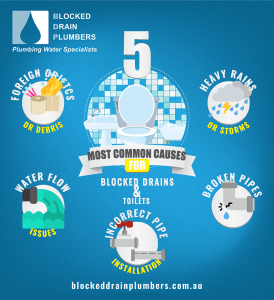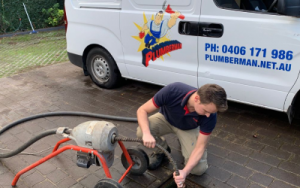One of the most common yet frustrating issues we face in daily life is blocked drains. Whether it’s inside your house or outside in the yard, a clogged pipe is always a hassle. From overflowing toilets, to slow-moving sinks, blocked drains can cause all sorts of trouble. The good news is, these blockages are usually fairly easy to address with some DIY tactics.click here
What Causes Blocked Drains?
Most clogs are caused by an accumulation of dirt, hair, soap residue, detergents, and potting soil from improper disposal. Greasy substances like cooking oil and fats can also congeal in the pipes, causing them to block slowly over time. Foreign objects such as toys, sanitary products, and even the occasional jewellery can sometimes be the culprits when it comes to clogging our drains.
How To Tell If You Have a Blocked Drain
There are several signs that indicate you may have a blocked drain. Water pooling up around the fixture or gushing out from beneath the sink can be a telltale sign. Additionally, the fixture may become slow to drain, emitting strange gurgling noises as air bubbles escape past the clog. If you’ve noticed any of these indications, then there’s a good chance you have a blocked drain.

Steps to Unblock the Pipe
If you think your drain is blocked, there are several steps you can take to try and unclog it. Firstly, read the manufacturer’s instructions before attempting anything, as some fixtures have parts that need special treatment. After that, use a plunger to attempt to push the blockage through the pipe. If this doesn’t work, you can try using a chemical drain cleaner.
If these methods don’t work, you can try a plumbing snake, a flexible metal auger designed to push through clogs. Many home improvement stores sell chemical cleaners, plungers, and plumbing snakes. However, if the blockage persists, then it’s time to call in a professional plumber who has the tools and experience to help.
Preventative Measures
Out of sight, out of mind; this phrase certainly applies when it comes to blocked drains! We tend to forget about our pipes until something goes wrong. To make sure nothing goes wrong, there are some preventative measures you should take, such as avoiding pouring grease down the drain, running hot water regularly, and getting regular inspections for your pipes.
It’s also important to know what shouldn’t go down the drain. Avoid flushing sanitary products, food scraps, paper towels, nappies, cigarette butts, cotton buds, and other items down the toilet. If unsure, click here. These items can quickly lead to a blocked drain.
Early Intervention is Key
When it comes to blocked drains, early intervention is key. As soon as you notice the signs of a potential clog, take steps to investigate and assess the issue. By doing this, you can avoid costly emergency plumbing companies who charge hefty fees for their services. Instead, take the time to troubleshoot the problem yourself and save yourself both money and time.
While blocked drains can be a headache, with some straightforward troubleshooting and preventive maintenance, they’re easily avoided. Taking the time to learn more about your plumbing can help you save hundreds of dollars in future repairs and ensure your drains are free-flowing for years to come.

